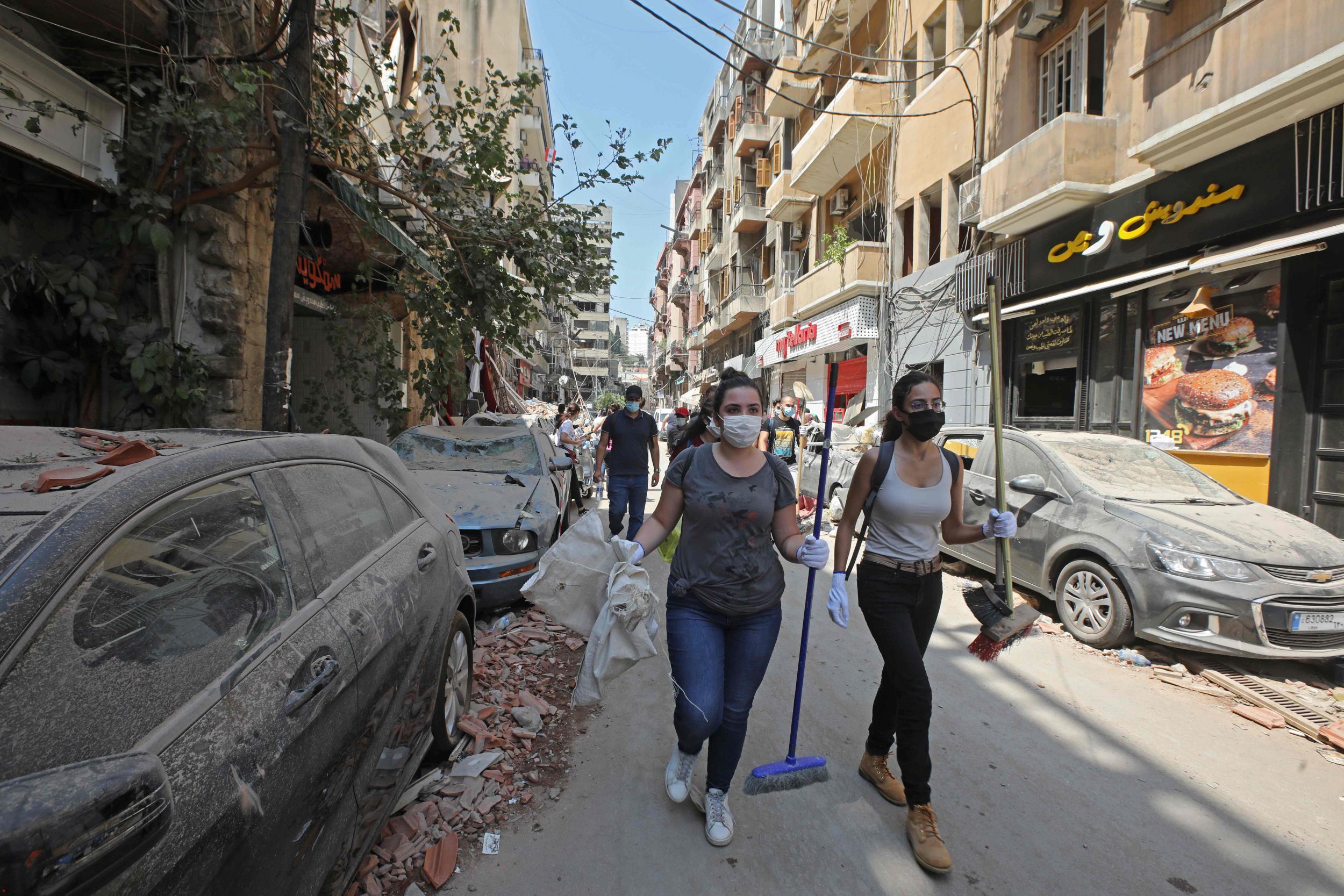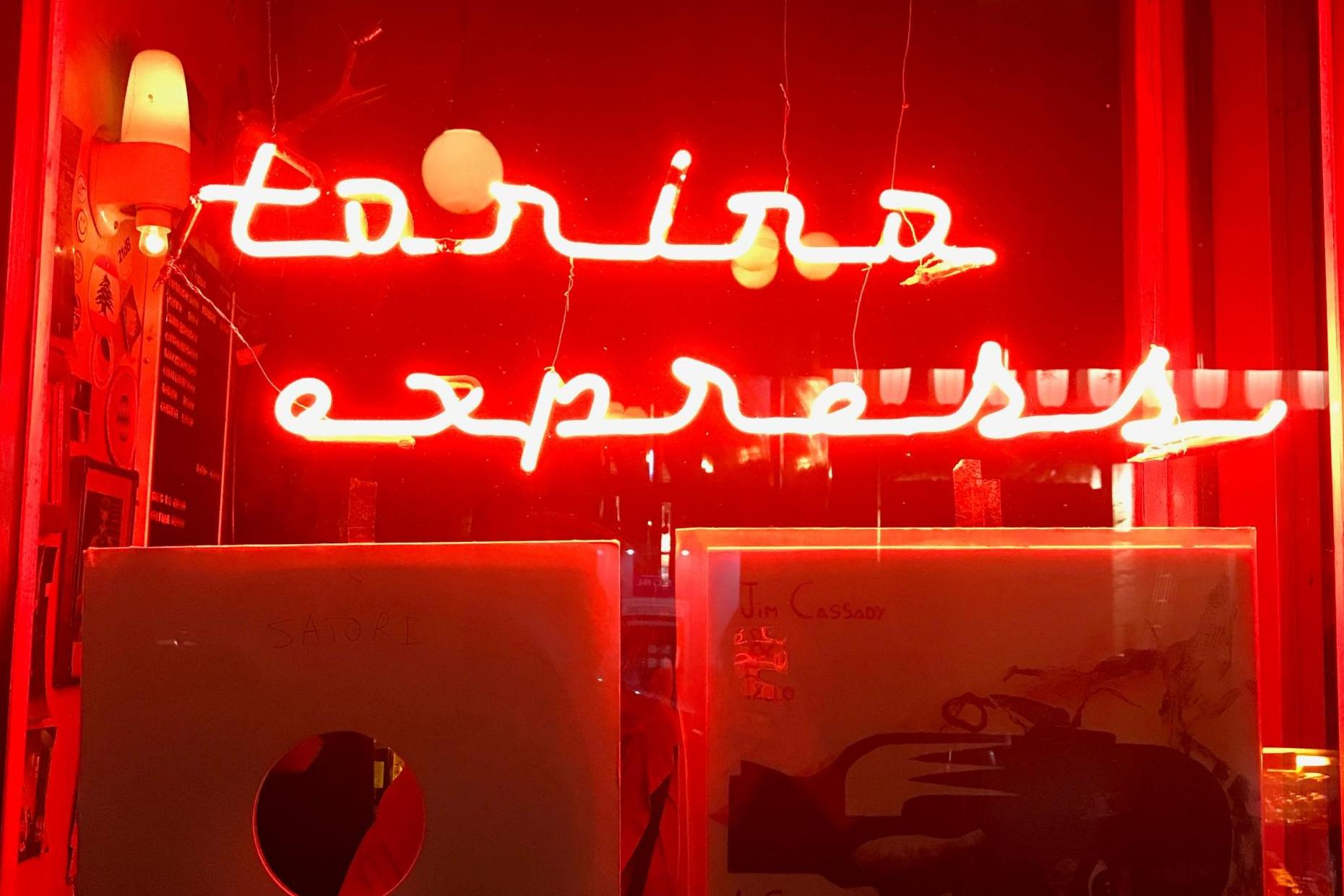Gemmayze, Beirut’s beating heart, left in ruins by explosion
A neighbourhood of historic buildings, homes, bars, restaurants, art galleries and livelihoods, Gemmayze may never recover from the blast that hit Lebanon’s capital this week, writes Richard Hall

Your support helps us to tell the story
From reproductive rights to climate change to Big Tech, The Independent is on the ground when the story is developing. Whether it's investigating the financials of Elon Musk's pro-Trump PAC or producing our latest documentary, 'The A Word', which shines a light on the American women fighting for reproductive rights, we know how important it is to parse out the facts from the messaging.
At such a critical moment in US history, we need reporters on the ground. Your donation allows us to keep sending journalists to speak to both sides of the story.
The Independent is trusted by Americans across the entire political spectrum. And unlike many other quality news outlets, we choose not to lock Americans out of our reporting and analysis with paywalls. We believe quality journalism should be available to everyone, paid for by those who can afford it.
Your support makes all the difference.If Beirut has a beating heart, it is not the soulless downtown district in the centre of the city; gleaming and empty, often closed to the public to allow the wealthy to browse the designer shops unbothered.
That title, instead, belongs to the neighbourhood of Gemmayze.
In Gemmayze, there is life. Or at least there was. On Tuesday, more than 2,700 tonnes of ammonium nitrate being held in a warehouse in Beirut’s port exploded and sent shock waves through the city.
At least 145 people died and 300,000 were made homeless. Gemmayze, a mile-long corridor that stretches east from downtown, lay right in the path of the destruction – less than 800 metres from the site of the blast.
To look at what was destroyed in Gemmayze is to go some way to understanding what Beirut has lost: Not only lives, family members, friends, but part of the soul of the city. Homes, bars, restaurants, art galleries, livelihoods and historic buildings, all gone in an instant.
“Gemmayze is freedom. Whatever you wanna wear, whatever you wanna say, whoever you wanna kiss, whatever you wanna do. It’s a beautiful place. That’s why I chose it,” says 33-year-old Hala Okeili, who lives and works in the neighbourhood.
Okeili was driving towards her home when the explosion struck. Her whole life was there: her husband, her home, her business, her husband’s business. Her partner survived, the rest did not.
“I arrived and everything was destroyed,” she says. “People bleeding. Our neighbours, faces I recognised. Young people bleeding from every single part of their bodies.”
Okeili’s story, like the neighbourhood in which she lived, is one of hope and renewal, and now loss. She is like so many young Lebanese who had the education and means to do anything, go anywhere, but chose instead to pour their hearts into Beirut, their home.
After this explosion, we don’t have any dreams. We don’t have any feelings. We can’t do anything. We are like visitors in our country
After training as a lawyer in France and working as a corporate lawyer for eight years, Okeili quit the profession to open a yoga studio in the centre of the neighbourhood in 2016. Sarvam Yoga was busy and thriving. So too was the coffee shop started by her husband, Omar, just down the road. Omar wanted to cater to a new generation of coffee connoisseurs and brought beans to Lebanon from around the world.
“We had the choice to leave but we chose to stay and make a change,” says Okeili. “I’m a lawyer, I quit my job. I said to myself I want to open a yoga studio because people here need it. They need that piece of mind.”
They knew the risks. Building a business from the ground up anywhere in the world requires a special kind of bravery. In Lebanon, with all its dysfunction and corruption, it is the pursuit of pioneers.
Gemmayze was full of pioneers. Restaurants were opening all the time – young Lebanese who had travelled and brought back cuisine from around the world. Art galleries, new bars with speciality cocktails. It was a testing ground for entrepreneurs and dreamers – as daring and diverse as any New York street.
In the evenings, Gouraud Street, which runs through the centre of the neighbourhood, was an intoxicating buzz of people spilling out of bars and onto the street. Often it wasn’t clear where the pavement ended and the road began. Steep steps, painted in bright colours, lead off from the main road up the hill. In the summer, they play host to concerts and outdoor film festivals.

Mixed in among the gleaming, hopeful shop fronts were the remnants of the city’s gloried past. Stunning Ottoman-era mansions with balconies that hung over the street. Ornate townhouses with large windows from the French mandate, when the city earned the nickname “the Paris of the Middle East”. Some of these homes had been in the same families for generations. Elderly, working-class grandparents lived alongside young professionals.
Okeili lived in one of those houses. A 300-year-old building just off the main street, which was destroyed. In the past two days, strangers have been helping her pull her belongings out from the shaky structure. Many of them are too damaged to be repaired.
“We’re ashamed to talk about the materialistic losses, because a lot of people died. We know some who died,” she says. “But it’s a beautiful place. All the heritage, all the beautiful buildings are gone. We know they will just destroy them because no one is there to fix it. Gemmayze as we know it will no longer be the same.”
Heba Kanso, who has lived in Gemmayze for three years, was out of the country when she received a call from her cousin on the day of the explosion.
“He kept repeating ‘everything is gone, everything is gone.’ I was in shock,” the 33-year-old says.

After checking in with her family to make sure they were safe, she started to run through a list of all the places in the neighbourhood she visited every day that would no longer be there anymore, and the people who might be hurt.
“I can go down my list but there is simply too much destruction and too many people hurt by this,” she says. “I realised that this area will be forever changed, including my home which was destroyed. Every single building is damaged and so much incredible historic architecture is destroyed.”
Gemmayze felt like any street in a cosmopolitan city, but it had a distinct neighbourhood feel. Everyone knows each other. It had characters.
In the centre of it all stood Le Chef, a decades-old restaurant serving Lebanese fare. The no-frills restaurant would fill up every night with locals and foreign visitors alike. Anyone who passed by the store would be beckoned by the booming voice of head chef Charbel Bassil: “Welcome, welcome,” he shouted, as he attempted to draw them into the brightly lit cafe.
Bassil was in his restaurant when the explosion shattered the windows to Le Chef. He was injured, along with two of his staff and a customer.
“We saw hell on earth,” he says, “but we thank God that we’re alive.”
Now recovering at home, Bassil is not sure if, or how, he will reopen.
“After this explosion, we don’t have any dreams. We don’t have any feelings. We can’t do anything. We are like visitors in our country. [We have] no future.”
Okeili feels the same. Like many others, she doesn’t trust Lebanon’s leaders enough to put her efforts into rebuilding all over again. Even before the explosion, Lebanon was teetering on the edge – its economy ruined by years of corruption by the country’s political class.
“They’ve taken everything away from us. Our money, our dreams, even our buildings – our souls. And we keep on fighting,” she says.
But this explosion may be the final straw.
“The people of this country deserve a better life. They are creative, talented, resilient, they are happy people, full of life and love,” she says.
“In one year we lost all our savings, our house, our business. I almost lost my husband. What more can I lose? If there’s no miracle my plan might be to leave. I don’t have the energy anymore. I might lose this again and again.”
Bassil and Okeili, Beirut’s past and future, symbols of its hope and resilience, are now devoid of both.
Join our commenting forum
Join thought-provoking conversations, follow other Independent readers and see their replies
Comments